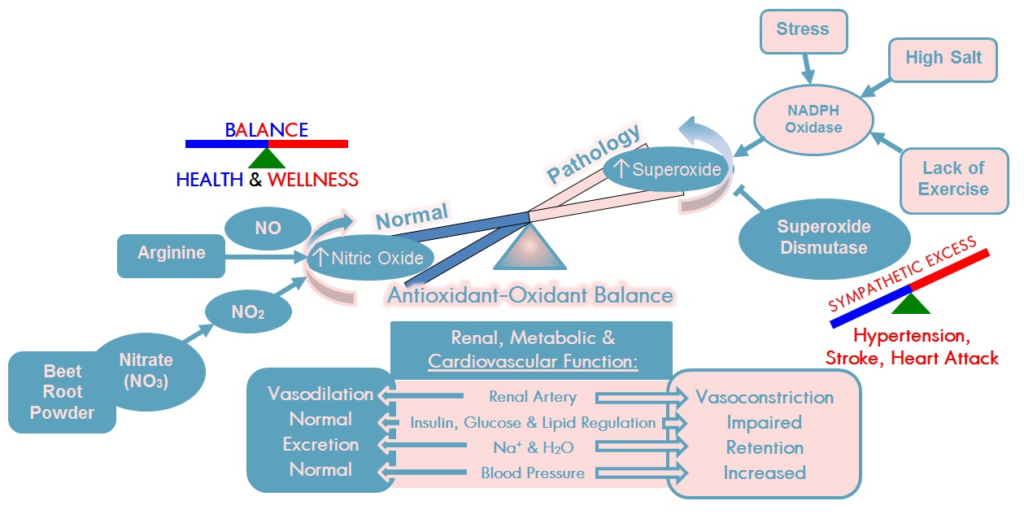Click here to download this post
COVID, like all other viruses, attacks primarily the Mitochondria and DNA of cells see figure [adapted from [i]]. It attacks the DNA to help them replicate. In this way, the virus is able to produce the proteins that it needs to live. It cannot do this on its own. This is one reason why viruses are very species-specific[1]. As parasites, they attack the mitochondria to obtain the energy they need to live by siphoning off a significant portion of the energy molecules (called ATP – adenosine tri-phosphate) that we also need to be active or even live. The virus, by infecting us, leaves less energy for us the host.
Nerve cells and heart muscle cells contain, by far, the most mitochondria in the human body. This attack on the mitochondria results in what is known as oxidative stress. Oxidative stress[2] causes fatigue, exercise intolerance, and many of the other mental, cognitive, and physical (including pain) symptoms reported with PACS. In most cases, it is like having a full fuel tank in your car with a clogged fuel filter. You seem fine at rest (while idling), but as soon as you step on the gas to go (and be active), nothing happens because the necessary, additional gas (energy molecules) does (do) not reach the engine (the brain and nervous system and the heart). In this case, the extra energy molecules are actually not available because they have been stolen by the virus. All parasites (viruses, bacteria, molds, mildews, etc.) affect the mitochondria and energy supply this way. This is why you are fatigued and have no energy when you are sickened by these agents. Add to this the fact that COVID also compromises the lungs, reducing the host’s oxygen intake, causing less fuel to generate energy molecules, and you have the SARS effect.
One cause of Oxidative Stress is indeed cytokine dysregulation. The “Cytokine Storm,” referenced as a “Viral Tornado” in the 20/20 interview of Mount Sinai Hospital in November 2020, is due to oxidants, including reactive oxygen species (ROS).[3] Cytokine storm and oxidative stress are the main players of Acute Respiratory Distress Syndrome development during respiratory virus infections.[4] Mechanisms of cytokine production (cytokine storm) and epithelial barrier disruption by respiratory virus infection leads to the enhanced ROS production.
Cytokine Storm and Oxidative Stress in COVID-19 patients result in a vicious cycle[5], causing Hypercytokinemia, known as cytokine storm[6]. Given this, simple therapies to prevent oxidation and excessive cytokine release (Hypercytokinemia) are prevalent and readily available. In fact, some are already being used, including Vitamins C & D and Zinc, tacitly confirming the Oxidative Stress hypothesis.
If the politically motivated powers that be would simply admit this commonly and well-known fact, Oxidative Stress is readily treated with antioxidants. Again, that is, in large part, the reason why Vitamin C & D and Zinc are a significant part of COVID therapy. The problem for the politicals is that these therapeutic agents do not make anyone any money. They have to fear the public into believing that special medications and vaccines are required. This is why commonly used and effective medicines that have worked here in the US and elsewhere around the world were pulled from doctors, because, again, they did not make any of the political powers any money.
The effect on nerve cells, especially Parasympathetic and Sympathetic (P&S) nerve cells, is what eventually leads to post-COVID syndrome[7]. These authors wrote an Op/Ed back in March of 2020 stating that a post-COVID syndrome will present. We still cannot get that manuscript published (over 10 journals have refused to print it – that is why we have had to create our own journal and print it here in our own journal).
Oxidative Stress and its effect on the P&S nervous systems explain the first issue of PACS, a potential delay in the symptoms. Initially, this was a problem of doctors, and may still be a problem based on a recent Op/Ed[8], writing about “echoes of chronic fatigue in the effort to blame the coronavirus for a host of questionable symptoms.” This delay seems to separate COVID from PACS. Add to this the general lack of knowledge about the P&S nervous systems, and this sort of ignorance gains credibility. Especially when the patients seem normal at rest, for when most tests are administered, the patient is either sitting or lying down. However, the P&S nervous systems are rarely resting. In fact, when you are resting is, arguably, when the P&S nervous systems are most active.
The P&S nervous systems control or coordinate all organs and organ systems within the body (including themselves). The job of the P&S nervous systems, collectively, is to maintain normal organ function, even though they themselves may not be functioning normally. Until the P&S system fails, the organs remain functioning normally, unless they are attacked directly. Once the organs fail, then symptoms present. It is the unhealthy or improperly controlled organs that generate symptoms. The delay in symptoms presenting is based on how long it takes the P&S systems to fatigue or become significantly un-balanced (fail), permitting the organs to then function abnormally. resulting in symptoms.
It is like the heating and cooling systems of your house. Assume you have no knowledge of, nor are able to see, hear, or access the cooling and heating systems of your house, and that they are individual systems working together to keep you comfortable. Assume all you have to assess the function of those systems is the thermostat in the house. Say you set the temperature on the thermostat to 70°F (like 70 beats per minute for heart rate). Assume it is a hot, humid summer day in the south somewhere. Assume that the cooling system is well. Now assume that a $5.00 heater switch fails and the heater turns on to full capacity. What happens to the temperature of the house as measured by the thermostat? … NOTHING! … The cooling system amps up to compensate not only for the ambient heat but also for the heat from the heating system. Now both systems are operating at full capacity or more, and the thermostat temperature still reads 70°F, and everyone is still happy.
How long will this situation last until there is a catastrophic failure in one or both of the air conditioning systems? Only after a catastrophic failure does the temperature change. Then it is too late, and the repair is $5,000.00 or more. The change in temperature, indicating a failure, is too late! The $5.00 repair is simpler, and easier, but you have to be measuring both the cooling and heating systems, not just the net result of their combined activities.
The autonomic nervous system in the human body is very similar in this regard. We are still surprised by heart attacks and strokes and other organ failures because we only measure the autonomic nervous system (the net result of the P&S nervous systems) and not the individual P&S nervous systems themselves. This is made more poignant by the fact that it is the purpose of the P&S nervous systems to work together to maintain normal organ function, even when they themselves are dysfunctional. Current, common-place healthcare measurements are made more effective and efficient with the additional information of P&S Monitoring.
The second issue is that the parasitic effect of COVID is on all mitochondria within all organs. This compounds the effect of an unbalanced P&S nervous system and the inefficient control from them, which also affects all organs.
Again, unfortunately, relatively little is known about the P&S nervous systems because, until rather recently, an efficient and simple method of measuring it was not widely accepted, and the more widely known measures of the Autonomic nervous system as a whole were not able to specify the underlying dysfunctions sufficiently so as to develop effective treatments or to demonstrate that treatment was even possible.
This leaves doctors with the current plan of simply “characterizing the disease.” In other words, simply listing all of the symptoms and simply treating all of the symptoms individually. This of course leads to many prescription medications, whose multiple interactions are unknown, perhaps causing more symptoms than they (collectively) are supposed to relieve.
In fact, this compounding effect of unbalanced P&S control of weakened or dysfunctional organs multiplies the number of symptoms and adds more disorders, some of which appear to be mental illnesses as well. Note, most of these mental illnesses are also explained by unbalanced P&S control causing reduced blood flow to the heart and brain, resulting in brain fog, cognitive and memory difficulties, depression, anxiety, headache and migraine, muscle and joint pain, and sleep difficulties, as well as the fatigue, lightheadedness, and malaise commonly associated with PACS.
The lack of understanding of the P&S nervous systems leads to a third general problem or issue. Without the additional information from P&S testing, medicine has no other choice but to simply treat symptoms (which plays into the hands of the pharmaceutical and marijuana industries, enabling them to sell more product). Yes, understanding the P&S nervous systems does explain all symptoms of COVID and PACS, including Diarrhea.[9],[10]
Only the P&S nervous systems connect all symptoms and organ systems involved in the COVID and PACS conditions. In the example of Diarrhea, yes, the virus is in the stool, but then all viruses end up in the stool, so what is special about COVID? COVID strongly affects the immune system, which causes Parasympathetic Excess, which overdrives the motility of the GI system and leads to Diarrhea. Let’s not trample the issue out of ignorance. Let’s get to the underlying cause, do our best to minimize mortality risk and target the cause to minimize morbidity risk. Then, treat the end-organs that were themselves damaged and remain dysfunctional.
Depression (and Anxiety) are also more likely to be a result of dysautonomia. If the brain receives low levels of blood flow due to at least three types of dysautonomia, some of which may present simultaneously, the brain will be “asleep” while the patient is upright, sitting or standing, all day. A brain “asleep” is too often misdiagnosed as a brain “depressed.”
Then, if the blood flow drops any lower (due to a large meal or emotional event, etc.), the brain will issue an “Adrenaline Storm,” which is its way to call for more blood. The Adrenaline Storm may then cycle Anxiety. Treating this Depression/Anxiety condition with high dose antidepressants, such as Fluvoxamine (an OCD drug)[11]m ay, in some people, help to increase blood flow to the brain through other P&S interactions, but this is a very inefficient therapy and may be a self-fulfilling prophecy, forcing the patient to think that they have a mental health issue. Besides, the data are scant, and the conditions are not well controlled to rule out isolation, masks, and social distancing, which are contributing enough to Depression. We do not need any other causes.
Unfortunately, in many cases, simply increasing the numbers of medications and their dosages, in the hopes of relieving the symptoms faster, actually leads to more complications. Western pharmaceutical theory is based on the understanding of what one chemical (as a medication) in isolation will do to the human body. The interactions between more than two or three chemicals (medications) are not well known. This is the main reason why the very ill or elderly who are on 15 to 17 medications a week are chemically relegated to very poor qualities of life, sitting as lumps in their wheelchairs with no energy of motivation to be productive.
It is like the old nursery rhyme of the old lady that swallowed a fly, then a spider to get the fly, then a cat to get the spider, then a dog, etc. By the time you get to swallowing the elephant and the doctor is considering prescribing you a blue whale, it may be prudent to consider getting the fly.
The “fly” in the case of COVID is Oxidative Stress, which may be “gotten” with the super antioxidants, r-Alpha-Lipoic Acid (rALA) and Co-Enzyme Q10 (CoQ10). rALA is selective for nerves and heals the mitochondria, DNA, and other cellular processes that are affected by the virus, and CoQ10 is selective for heart muscle cells effecting the same repairs in those cells. Furthermore, rALA & CoQ10 are the most powerful antioxidants the body produces (second only to the most powerful antioxidant of all, which is exercise), and they make themselves even more powerful by recycling other antioxidants, such as Vitamin C & D, and Zinc.
So, why are we grasping at straws? Again, in the hysteria, we are overlooking the simple solutions. Unless of course it is because the simple solutions do not make the instigators of all of this enough money. Now there is a KF-94 mask that is 94% effective, as opposed to the KF-95 mask that is 95% efficient in filtering out airborne particulates. The article[12] states that the bottom line is this: “It’s not always just about filtration efficiency.” The article continues to state that these (surgical-grade) masks, such as the KF-94, are for use in a hospital because they’re designed for medical settings. In the real world, it may be they are hard to wear through the course of the whole day. The best mask is the one you can wear all the time.
So, is it about filtration or comfort? Viruses are very, very small! Are we trying to prevent the spread of the virus or not? Anything but a surgical-grade mask is useless in preventing the spread of the virus because the virus goes through the mask as if it were not there, and even with a surgical-grade mask, by the time a man has “5 o’clock shadow,” his hair has pushed the mask off his face far enough for the virus to escape un-impeded; not to mention men with beards. Similarly for some women with make-up, the microscopic peaks and valleys may be large enough for the virus to fit through and escape.
Another article[13] is entitled “International team of scientists identifies new treatment for COVID-19 that appears to be far more effective than drugs in use now.” However, it has only been tested on cells in the lab. The article concludes that “Even though ‘a drug is effective in cells in the laboratory, we don’t know what effect it will have on cells in the human body.’” So, how is this a new treatment yet, let alone better than current drugs? Again, science needs to be left alone to do their work and not give false hopes. Similarly, another article states that a “new Israeli drug cured 29 of 30 moderate/serious COVID cases in days in hospital.”[14] Great, 29/30! But how were the patients picked? What were their histories? There are still a million questions to be answered. There is a reason why it takes years and 10,000 patients to approve a new drug. What happened to the one that it did not cure and why? Did that patient die? A death rate of 1/30, or 3.33% is an awfully high death rate for a new drug. Killing the patient is not an acceptable side effect.
However, just relieving Oxidative Stress does not always repair the damage done to the P&S nervous systems. Further therapy may be required to rebalance the P&S systems to return health and wellness. P&S imbalance must be measured and monitored, because everyone is different, and the individual’s P&S systems at that time must be known in order to plan therapy. Some consider the P&S nervous systems as your physiologic fingerprint. They include and remember your entire medical and life history.
There are at least four P&S dysfunctions (dysautonomias) that may precipitate the symptoms of post-COVID syndrome, and more than one is quite possible, and their specific interactions are based on the individual patient’s own clinical and personal histories. All four dysautonomias, inappropriate P- or S-actions, individually explain the majority of PACS symptoms. Combinations of the four, which are more likely, in our experience, explain the range in severity of PACS. For more information, visit www.physiops.com.
Treating the P&S nervous systems, however, is rarely a fast process, nor does more medication hasten the process; in fact, quite the opposite. Much like a pendulum, hitting it hard knocks the pendulum off its hinge and you have many more problems. Treatment requires small, gentle, easy nudges over time to correct “the pendulum.” So, it is with the P&S nervous systems. Further, it is not like the cold where you get ten days of therapy and are healthy again. It may take up to three months to effect a change in the P&S nervous systems. It is more like breaking a bad habit and establishing a new, hopefully good habit. Even still, there are few if any changes in symptoms because the organs have yet to change. Changing the organs may take another three months depending on the severity of the insult. These time frames are also lengthened by age and severity of the insult, in this case, COVID. Patients must be diligent and patient during these six months or the condition will worsen, and it may take years to recover.
The average patient, by the time they visit a P&S clinic, have seen dozens of doctors over decades of time. The problem is that the other doctors only assess them when they are at rest, sitting or lying down. Rarely do they assess them while active. As the typical test results show, they are normal at rest – which is why many are not believed. They had better be normal at rest – they have had numerous doctors working really hard to make them normal … at rest; as attested to by P&S monitoring results. Again, a problem is that this portion of the nervous system never rests. Therefore, the P&S must be tested while active as well. This is the basis of P&S testing and always shows the reason(s) for a patient’s symptoms, as well as morbidity and mortality risks (respectively, they are the risks of additional symptoms, which is morbidity risk, and the risk of a major adverse event, including heart attack, stroke, and death, which is mortality risk).
The fourth issue, again based on the lack of understand and data on the P&S nervous systems, is that physicians have been left with few therapy options that are specific for the P&S nervous system. Unfortunately, there are, in fact, only two medications approved for P&S dysfunction, and both are approved for the same, singular dysfunction. Fortunately, it is a common P&S dysfunction that is common to post-Oxidative Stress conditions: Orthostatic Dysfunction, typically Postural Orthostatic Tachycardia Syndrome (POTS) or Orthostatic Hypotension. All other therapies are applied off-label. This causes other problems, including the fact that in western medicine, titrating patients to high levels of medication is common. This desensitizes patients to the low dosages needed to treat the P&S systems and not cause more symptoms. This often forces physicians to use supplements and lifestyle modifications, which are often less reliable or effective; especially if Oxidative Stress is not considered.
Given all of this, you begin to see why medicine is more focused on simply treating the symptoms of post-COVID syndrome or PACS, and then trying to convince you that this is your new normal and you must embrace it. Even before COVID, we have been railing against that philosophy, because as tens to hundreds of thousands of P&S (not autonomic, but P&S) patients across the country will attest, it does not have to be so – you may have a decent quality of life and productivity restored.
[1] As an example, all human HIV studies were performed on simian (monkey) HIV viruses so enable safety in the lab and not infect the humans doing the research.
[2] PubMed, a very large collection of highly reputable medical journals, alone lists 273 references associating coronavirus, specifically, with oxidative stress. This does not include the thousands of references associating other viruses with oxidative stress.
[3] Ye S, Lowther S, Stambas J. Inhibition of reactive oxygen species production ameliorates inflammation induced by influenza A viruses via upregulation of SOCS1 and SOCS3. J Virol. 2015;89(5):2672-2683. doi:10.1128/JVI.03529-14
[4] Meftahi GH, Bahari Z, Jangravi Z, Iman M. A vicious circle between oxidative stress and cytokine storm in acute respiratory distress syndrome pathogenesis at COVID-19 infection . Ukr.Biochem.J. 2021; Volume 93, Issue 1, Jan-Feb, pp. 18-29. doi:https://doi.org/10.15407/ubj93.01.018
[5] Khomich OA, Kochetkov SN, Bartosch B, Ivanov AV. Redox Biology of Respiratory Viral Infections. Viruses. 2018; 10(8):392. https://doi.org/10.3390/v10080392
[6] Suzuki K. Cytokine Response to Exercise and Its Modulation. Antioxidants. 2018; 7(1):17. https://doi.org/10.3390/antiox7010017
[7] PubMed alone lists over 1200 references associating oxidative stress with P&S dysfunction or imbalance.
[8] The Dubious Origins of Long Covid, by Jeremy Devine March 22, 2021 6:36 pm ET, Wall Street Journal
[9] Coronavirus symptoms: This is the likely order in which COVID-19 symptoms appear after you get infected, by Anushree Gupta Updated Feb 01, 2021 | 16:14 IST, https://www.timesnownews.com/health/article/coronavirus-symptoms-this-is-the-likely-order-in-which-covid-19-symptoms-appear-after-you-get-infected/714563
[10] COVID-19 and Diarrhea, https://www.news-medical.net/health/COVID-19-and-diarrhea.aspx
[11] What Is Fluvoxamine? OCD Drug Could Be Used to Treat COVID, by Jason Murdock On 3/8/21 AT 9:49 am EST
[12] “Coronavirus FAQ: Why Am I Suddenly Hearing So Much About KF94 Masks?” by Pranav Baskar January 22, 20216:12 pm ET, https://www.npr.org/sections/goatsandsoda/2021/01/22/959683338/coronavirus-faq-why-am-i-suddenly-hearing-so-much-about-kf94-masks
[13] International team of scientists identifies new treatment for COVID-19 that appears to be far more effective than drugs in use now, by Mark Johnson Milwaukee Journal Sentinel https://www.jsonline.com/story/news/2021/01/25/international-team-finds-new-more-effective-drug-treat-covid-19/6673529002/
[14] New Israeli drug cured 29 of 30 moderate/serious COVID cases in days — hospital, by Toi Staff 5 February 2021, 3:29 pm, https://www.timesofisrael.com/new-israeli-drug-cured-moderate-to-serious-covid-cases-within-days-hospital/
[i] Rasa S, Nora-Krukle Z, Henning N, Eliassen E, Shikova E, Harrer T, Scheibenbogen C, Murovska M, Prusty BK; European Network on ME/CFS (EUROMENE). Chronic viral infections in myalgic encephalomyelitis/chronic fatigue syndrome (ME/CFS). J Transl Med. 2018 Oct 1;16(1):268. doi: 10.1186/s12967-018-1644-y. PMID: 30285773; PMCID: PMC6167797.
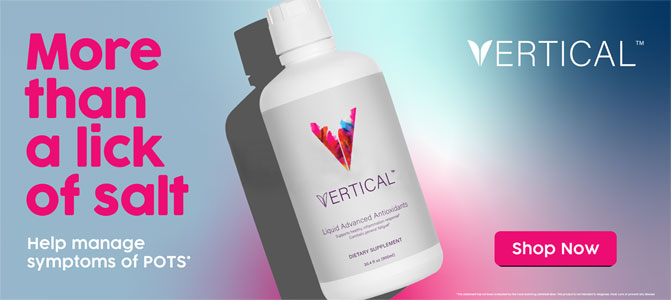



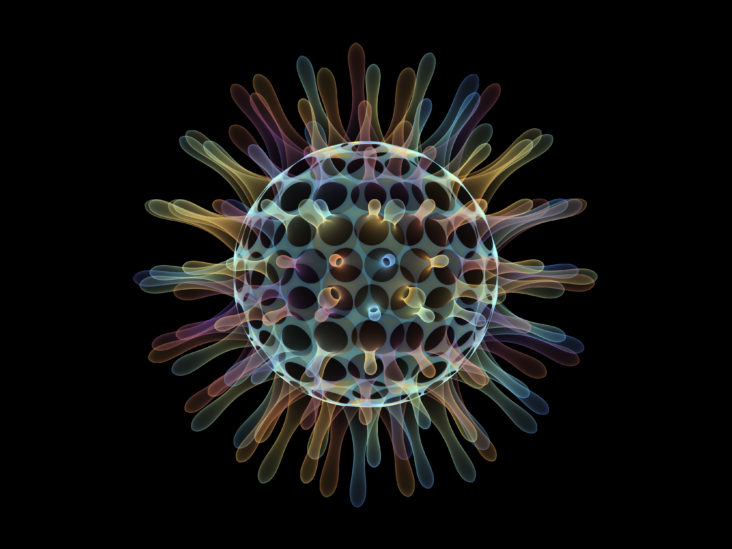

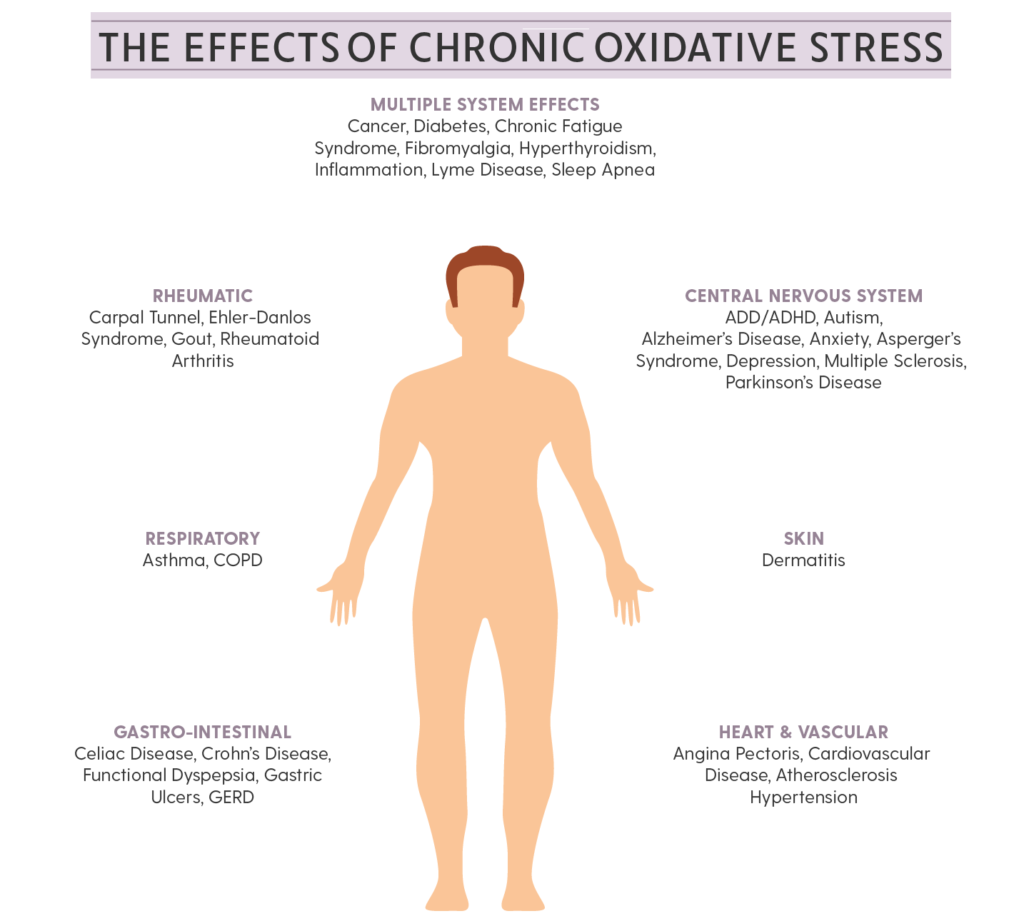
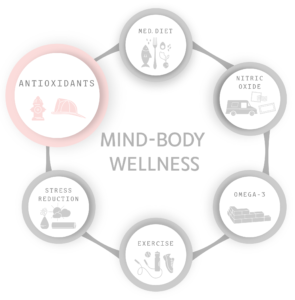 The body has natural Antioxidants to sequester, or neutralize, Free Radicals to prevent oxidative stress from injuring tissues and destroying cells. Natural Antioxidants include Vitamins A, C, & E, Glutathione, Selenium, Alpha Lipoic Acid (ALA) and Coenzyme Q-10 (CoQ10). Many scientists feel that ALA is the ideal antioxidant because it is both a lipid and water soluble (it can dissolve in both lipid and water environments) and can cross the Blood-Brain Barrier. It is absorbed rapidly through the Gastrointestinal (GI) tract high up in the digestive system and it is immediately available to neutralize free radicals quickly. It has also been shown to recycle Vitamin C and Vitamin E in the body. Vitamin C is only water soluble and Vitamin E is only lipid soluble. Because ALA is both liquid and lipid soluble, it can pass the Blood-Brain Barrier and increase available brain energy. Not only can ALA recycle Vitamin C & E but also Glutathione. Glutathione is probably the most important intracellular Antioxidant.
The body has natural Antioxidants to sequester, or neutralize, Free Radicals to prevent oxidative stress from injuring tissues and destroying cells. Natural Antioxidants include Vitamins A, C, & E, Glutathione, Selenium, Alpha Lipoic Acid (ALA) and Coenzyme Q-10 (CoQ10). Many scientists feel that ALA is the ideal antioxidant because it is both a lipid and water soluble (it can dissolve in both lipid and water environments) and can cross the Blood-Brain Barrier. It is absorbed rapidly through the Gastrointestinal (GI) tract high up in the digestive system and it is immediately available to neutralize free radicals quickly. It has also been shown to recycle Vitamin C and Vitamin E in the body. Vitamin C is only water soluble and Vitamin E is only lipid soluble. Because ALA is both liquid and lipid soluble, it can pass the Blood-Brain Barrier and increase available brain energy. Not only can ALA recycle Vitamin C & E but also Glutathione. Glutathione is probably the most important intracellular Antioxidant.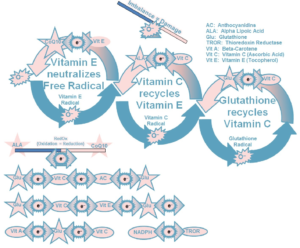 Antioxidant and is synthesized within the Mitochondria and consists of three Amino Acids, Cysteine, Glutamic Acid, and Glycine. Glutathione is not easily absorbed orally and cannot pass through the Mitochondrial membrane so easily. Therefore, anything that preserves the body’s natural production of Glutathione and keeps the concentration up is valuable. This is where ALA comes in as a very important Antioxidant. It recycles Glutathione and replenishes the body’s stores. Glutathione is a very important component of several enzyme systems in the body that are organ-protective from disease. There is some data to suggest that ALA is also an excellent chelating agent and protects us from heavy metals, although this is beyond the scope of this discussion.
Antioxidant and is synthesized within the Mitochondria and consists of three Amino Acids, Cysteine, Glutamic Acid, and Glycine. Glutathione is not easily absorbed orally and cannot pass through the Mitochondrial membrane so easily. Therefore, anything that preserves the body’s natural production of Glutathione and keeps the concentration up is valuable. This is where ALA comes in as a very important Antioxidant. It recycles Glutathione and replenishes the body’s stores. Glutathione is a very important component of several enzyme systems in the body that are organ-protective from disease. There is some data to suggest that ALA is also an excellent chelating agent and protects us from heavy metals, although this is beyond the scope of this discussion.